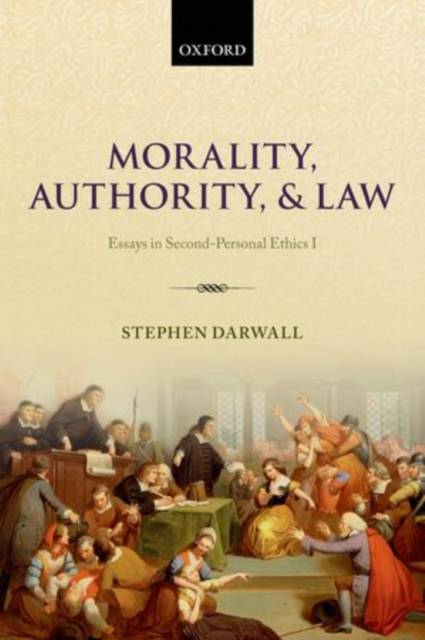
- Afhalen na 1 uur in een winkel met voorraad
- Gratis thuislevering in België vanaf € 30
- Ruim aanbod met 7 miljoen producten
- Afhalen na 1 uur in een winkel met voorraad
- Gratis thuislevering in België vanaf € 30
- Ruim aanbod met 7 miljoen producten
Zoeken
€ 90,45
+ 180 punten
Uitvoering
Omschrijving
Stephen Darwall presents a series of essays that explore the view that central moral concepts are irreducibly second-personal, in that they entail mutual accountability and the authority to address demands. He illustrates the power of the second-personal framework to illuminate a wide variety of issues in moral, political, and legal philosophy. Section I concerns morality: its distinctiveness among normative concepts; the metaethics of 'bipolar obligations' (owed to someone); the relation between moral obligation's form and the substance of our obligations; whether the fact that an action is wrong is itself a reason against action (as opposed to simply entailing that sufficient moral reasons independently exist); and whether morality requires general principles or might be irreducibly particularistic. Section II consists of two essays on autonomy: one discussing the relation between Kant's 'autonomy of the will' and the right to autonomy, and another arguing that what makes an agent's desires and will reason giving is not the basis of 'internal' practical reasons in desire, but the dignity of persons and shared second-personal authority. Section III focuses on the nature of authority and the law. Two essays take up Joseph Raz's influential 'normal justification thesis' and argue that it fails to capture authority's second-personal nature, without which authority cannot create 'exclusionary' and 'preemptive' reasons. The final two essays concern law. The first sketches the insights that a second-personal approach can provide into the nature of law and the grounds of distinctions between different parts of law. The second shows how a second-personal framework can be used to develop the 'civil recourse theory' in the law of torts.
Specificaties
Betrokkenen
- Auteur(s):
- Uitgeverij:
Inhoud
- Aantal bladzijden:
- 228
- Taal:
- Engels
Eigenschappen
- Productcode (EAN):
- 9780199662593
- Verschijningsdatum:
- 19/05/2013
- Uitvoering:
- Paperback
- Formaat:
- Trade paperback (VS)
- Afmetingen:
- 155 mm x 231 mm
- Gewicht:
- 362 g

Alleen bij Standaard Boekhandel
+ 180 punten op je klantenkaart van Standaard Boekhandel
Beoordelingen
We publiceren alleen reviews die voldoen aan de voorwaarden voor reviews. Bekijk onze voorwaarden voor reviews.








